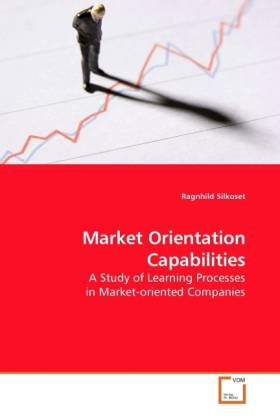
- Afhalen na 1 uur in een winkel met voorraad
- Gratis thuislevering in België vanaf € 30
- Ruim aanbod met 7 miljoen producten
- Afhalen na 1 uur in een winkel met voorraad
- Gratis thuislevering in België vanaf € 30
- Ruim aanbod met 7 miljoen producten
Zoeken
Market Orientation Capabilities
A Study of Learning Processes in Market-oriented Companies
Ragnhild Silkoset
Paperback | Engels
€ 58,45
+ 116 punten
Omschrijving
Despite the focus on market-oriented companies' superior ability to develop unique market knowledge, few studies have examined how the information processing within the market-oriented companies transforms market data into knowledge. This book combines market orientation with organizational learning theories and develops a model that looks at causes that facilitate the learning process within the market-oriented companies. The author identifies three market orientation capabilities to reflect this learning: market orientation efficiency, market orientation scope and market orientation competitiveness. An empirical investigation among 189 hotels identifies six factors that affected market orientation capabilities, including shared visions, shared market orientation visions, open mind, knowledge level, market based incentives, and turnover. Finally, the three market orientation capabilities positively affected the companies ability to produce superior products.
Specificaties
Betrokkenen
- Auteur(s):
- Uitgeverij:
Inhoud
- Aantal bladzijden:
- 156
- Taal:
- Engels
Eigenschappen
- Productcode (EAN):
- 9783639044294
- Uitvoering:
- Paperback

Alleen bij Standaard Boekhandel
+ 116 punten op je klantenkaart van Standaard Boekhandel
Beoordelingen
We publiceren alleen reviews die voldoen aan de voorwaarden voor reviews. Bekijk onze voorwaarden voor reviews.








